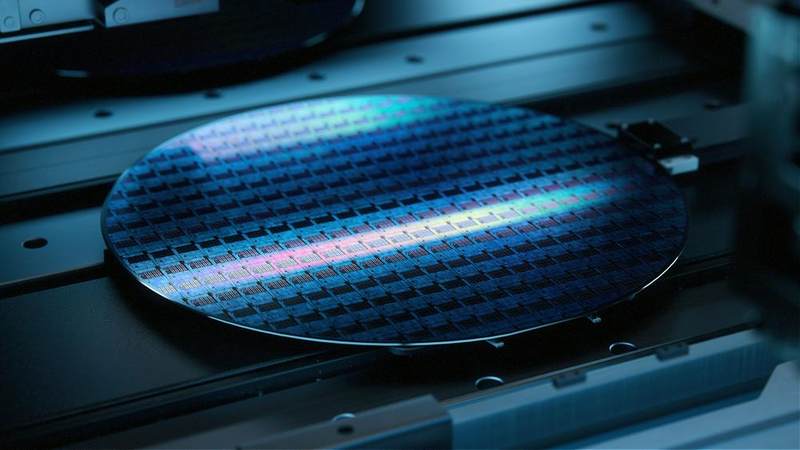News Flash in Semiconductors: Acquisitions, Reorganizations, and Market Shifts
 The semiconductor industry, as the core of modern technology, has always been in the spotlight for its development trends. Recently, several significant events have taken place within the industry, including corporate acquisitions, business reorganizations, and market strategy adjustments. These events not only reflect the competitive landscape within the industry but also signal the direction of future technological development. This article will review and analyze the major news in the semiconductor industry recently, aiming to provide valuable references for industry practitioners and observers.
The semiconductor industry, as the core of modern technology, has always been in the spotlight for its development trends. Recently, several significant events have taken place within the industry, including corporate acquisitions, business reorganizations, and market strategy adjustments. These events not only reflect the competitive landscape within the industry but also signal the direction of future technological development. This article will review and analyze the major news in the semiconductor industry recently, aiming to provide valuable references for industry practitioners and observers.
I. Cadence Acquires Arm's Artisan Base IP Business
Cadence has announced an agreement to acquire Arm's Artisan Base IP business. The Artisan Base IP includes standard cell libraries, memory compilers, and GPIOs optimized for advanced nodes of foundries, which are crucial for semiconductor design. Through this acquisition, Cadence will enrich its semiconductor design IP portfolio and incorporate Arm's Artisan Base IP engineering team. The transaction is expected to be completed in the third quarter of 2025, subject to regulatory approval and other customary closing conditions. This acquisition will provide Cadence with more comprehensive technical support in the field of semiconductor design and further consolidate its position in the industry.
II. OpenAI Considers Acquiring AI Programming Tool Windsurf
According to Bloomberg, OpenAI is in acquisition talks with Windsurf (formerly known as Codeium) for around $3 billion. Windsurf is an AI-assisted programming tool that can write code based on natural language prompts. If the acquisition is successful, it will be OpenAI's largest deal to date. This move will help OpenAI enhance its competitiveness in the increasingly competitive AI-driven programming assistant market. However, the terms of the acquisition have not been finalized yet, and the negotiations could still change or even fall through. Currently, neither OpenAI nor Windsurf has commented on the acquisition rumor.
III. ABB to Spin Off Its Robotics Division
ABB plans to spin off its robotics division and take it public in 2026. The division mainly produces industrial robots and related software. After the spin-off, it will operate as an independent company to improve its profitability. ABB stated that the company will focus on more profitable businesses, such as the electrification division, which is benefiting from the surge in data center investments fueled by the AI boom. The robotics division has recently been affected by the slowdown in China's manufacturing industry, and the spin-off is expected to improve its financial situation through independent operation.
IV. MicronEstablishes New "Cloud Storage Business Unit
Micron Technology announced the reorganization of its business units to establish a new "Cloud Storage Business Unit," focusing on meeting the AI-related storage chip needs of large cloud service providers. The unit will concentrate on products for hyperscale data centers and high-bandwidth memory (HBM) chips. HBM chips have attracted significant attention from investors due to their synergy with AI GPUs, especially Nvidia GPUs. Micron Technology is one of the world's top three memory chip manufacturers. In March of this year, Micron Technology forecasted that its quarterly revenue would exceed Wall Street's expectations, thanks to the demand for HBM. This business reorganization will enable Micron to better seize the opportunities brought by the AI market and enhance its competitiveness in the memory chip field.
V. IntelNeeds License to Sell Some AI Chips to Chinese Customers
U.S. chip giant Intel has informed its Chinese customers that it will need a license to sell some of its advanced AI processors. Previously, the U.S. government imposed export controls on Nvidia's H20 chips sold to China, resulting in substantial costs for Nvidia. Intel's move is likely to comply with the U.S. government's regulations, but this restriction will undoubtedly impact the trade relationship between the U.S. and Chinese semiconductor markets. Additionally, Christophe Fouquet, the CEO of Dutch semiconductor equipment manufacturer ASML, said that tariffs "add uncertainty to the macro environment," reflecting the profound impact of international trade frictions on the semiconductor industry.
Conclusion
The recent dynamics in the semiconductor industry show that cooperation and competition among companies are becoming more intense, and technological innovation and market strategy adjustments are the keys to corporate development. From Cadence's acquisition of Arm's Artisan Base IP business to OpenAI's consideration of acquiring Windsurf, from ABB's spin-off of its robotics division to Micron's formation of a new "Cloud Storage Business Unit," and to Intel's need for a license to sell some AI chips to Chinese customers, these events all highlight the important position of the semiconductor industry in global technology competition. In the future, with the rapid development of emerging technologies such as artificial intelligence and data centers, the semiconductor industry will continue to face opportunities and challenges. Companies need to keep innovating and adjusting strategies to adapt to the rapidly changing market environment.
Conevo Semiconductor Solutions
Conevo Electronics specializes in IC and semiconductor component, delivering precise, cost-effective chip solution. We focus on integrated circuit parts to optimize your project efficiency.
1. The Samsung Semiconductor K4F6E3S4HM-MGCJ is a high-performance memory chip, likely featuring advanced DRAM technology with specific attributes such as capacity, speed, and power efficiency tailored for applications in computing and consumer electronics.
2. The TCAN1043ADMTRQ1 is a high-speed CAN transceiver designed for automotive applications, offering robust communication capabilities with features like fault protection and enhanced EMI performance.
3. The ST's STM32F429IIT6 is a high-performance microcontroller featuring an ARM Cortex-M4 core, with advanced peripherals, large memory capacity, and a wide range of connectivity options, making it suitable for demanding embedded applications.
Website: www.conevoelec.com
Email: info@conevoelec.com








